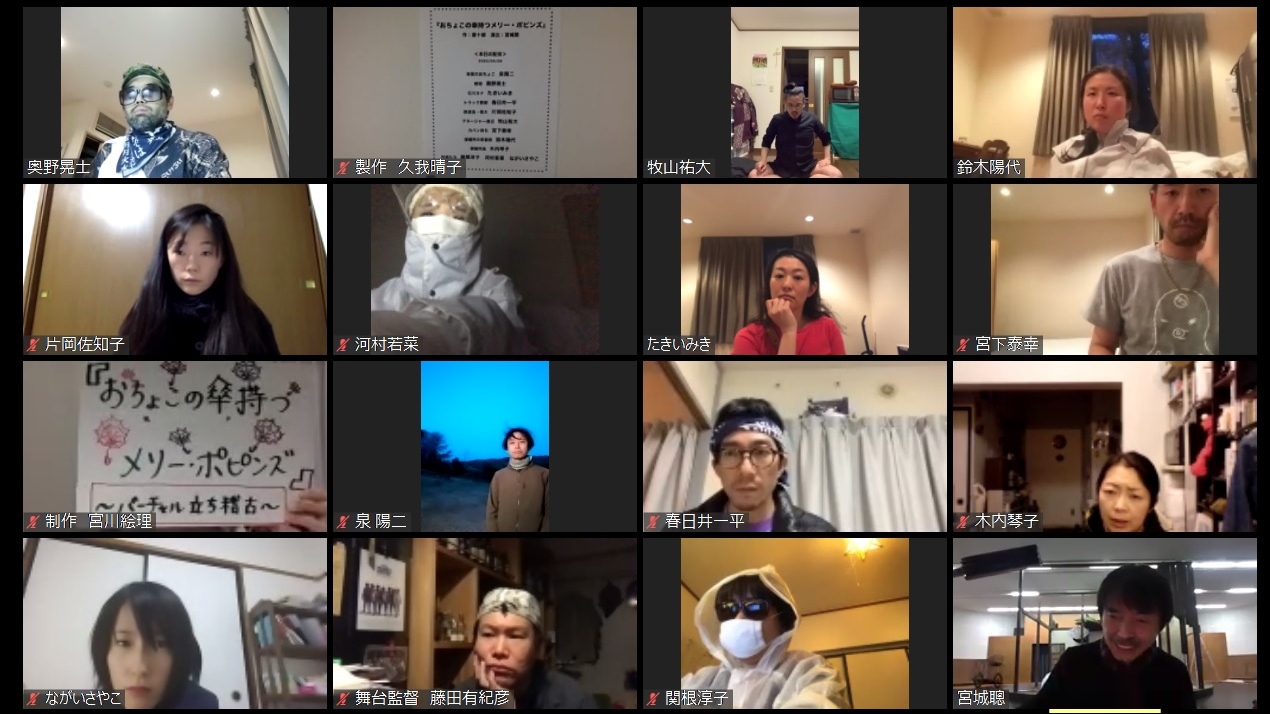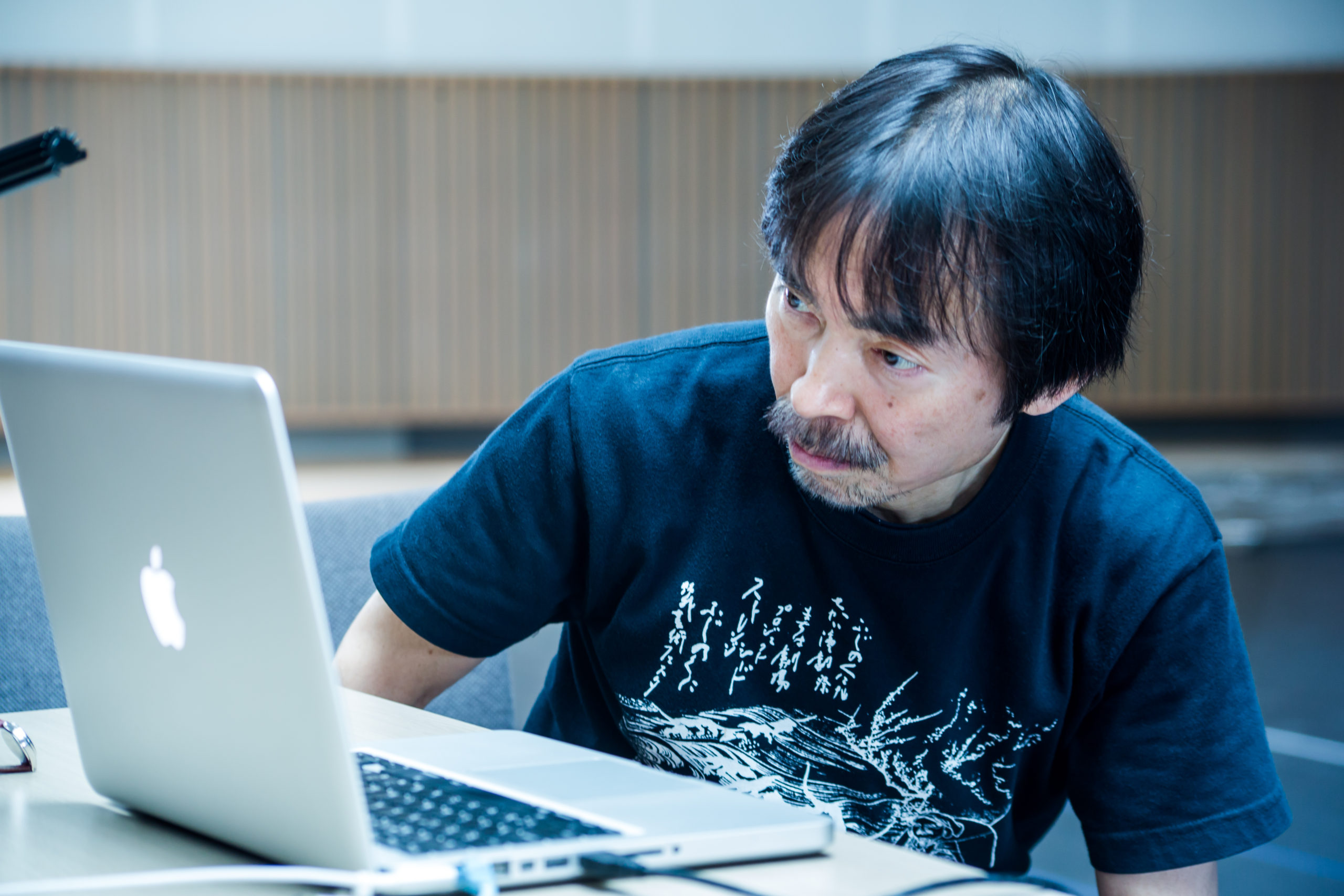
Already Japan has been living with COVID-19 for more than three months, and besides its tragic death toll many people’s routines and even their long-held beliefs and hopes for the future have been upended.
Consequently, in light of this shocking turn of events, the sadness of theater people was tempered by resignation when, on April 3, Shizuoka Performing Arts Center announced that its hugely popular annual World Theatre Festival Shizuoka was being canceled this year. Nonetheless, coming just a month ahead of its scheduled start, the loss of what many regard as Japan’s version of the Avignon Festival left a void for artists and local residents unlike anything before.
“Not only me, but our staff and actors were all entirely stumped,” Satoshi Miyagi, SPAC’s general artistic director, told The Japan Times in a recent exclusive online interview following the loss of an event which has gilded the Golden Week holidays with top-class theater and dance from around Japan and the world every May for as long as most can remember.
“In fact the shock made us realize we can’t live without theater — it’s as simple as that because it’s a matter of vital importance to our spirit,” the world-famous dramatist explained. “So instead we decided to run a theater-like event we called World Theatre Festival on the Cloud, with its programs mainly for online distribution.”
With that commitment made, Miyagi, 61, sprang into action, holding remote meetings with his actors and staff and organizing about 50 programs from countless ideas that ended up filling more than 60 pages of notes.
Among the Cloud festival’s core projects that stemmed from this whirlwind of activity, Miyagi not only held live Zoom meetings with rising Japanese dramatists, but also conducted hour-long live-streamed discussions with five leading artists from France, Switzerland, Brazil and Russia who had been scheduled to present plays at the World Theatre Festival Shizuoka 2020 — and posted some of their past works on the Cloud site.
In addition, viewers could take on-demand virtual seats for Miyagi’s masterpiece, his Buddhist-style production of the Greek tragedy “Antigone” when it was accorded the honor of opening the super-prestigious Avignon Festival in the South of France in 2017. It was an offer a remarkable 13,000 people took up over the five days it ran, while thousands also tuned into streamings of home-isolating SPAC actors rehearsing and training, and a series of drama lessons by Miyagi.
Consequently, although arts lovers couldn’t enjoy the delights of seaside Shizuoka City or the fresh-green tea fields around SPAC’s hilltop site this year, more than 30,000 viewers did get to enjoy the wealth of variety at the core of this year’s Cloud festival, including some usually unseen aspects of theater creation.
Meanwhile, in what Cloud organizers dubbed a “blossom” side project in reference to the cherry trees that flower every year around festival time, SPAC posted videos featuring backstage staff such as stage-set and costume teams, who were shown making a mask, and interviews with Japanese artists who have worked with SPAC.
Foreign actors based outside Japan were also invited to join a special program in which they each narrated Kenji Miyazawa’s famously doughty 1931 poem “Ame ni mo Makezu” (“Be not Defeated by Rain”) in both Japanese and their own languages — resulting in more than 25,000 views of “blossom” features in total.
As a result, the data shows that this year’s hastily concocted Cloud festival attracted more than 55,000 views in total — compared with around 5,000 people who normally pay for tickets at the annual World Theatre Festival Shizuoka (although many online viewers may have repeatedly watched various programs).
Finally, as icing on the cake for some 134 people quick enough to take up the offer, SPAC actors telephoned them and delivered a free hour-long one-to-one reading of whichever piece they selected from a range of choices.
Looking back on that veritable frenzy of creativity he whipped up in next to no time at all, Miyagi smiled broadly during our interview, saying, “I was pleased to hear that many people really enjoyed this emergency festival. In particular, lots of people praised the way we connected with artists in other countries to create a bona fide international theater event.”
Then he laughed, adding that with what he knows now it should be no problem in future to forge connections online with and between artists and audiences outside Japan who tend “to nest in their territory, isolated from others.” Indeed, he says modestly, it was a stroke of luck to involve foreign artists unable to come to Shizuoka in SPAC’s Cloud festival instead — but one that has given him plenty of hope through talks with colleagues around the world.
“First, I was despairing in the face of COVID-19, and so uneasy about the future of theater that I even imagined it would die out,” he says.
“But after I talked to Wajdi Mouawad (in France), Omar Porras (Switzerland), Christiane Jatahy (Brazil), Olivier Py (France) and Kirill Serebrennikov (Russia) one after the other, I realized that dramatists everywhere had the same problems and I felt stronger connections with them.
“Then I could believe that with such solidarity and enthusiasm and wisdom, theater would never die. Beyond that, I also think this crisis presents a good opportunity to hone the true essence of theater and weed out the previous oversupply of mediocre productions.”
Continuing to focus on the “refreshing effects” of this year’s coronavirus blight, Miyagi observes, “Today, people talk about being in a war with the virus as an enemy of humanity. However, I think such a simple idea of binary opposition, good against bad — like today’s international rivalries over containment measures or new vaccines — is quite a dangerous way of thinking. I prefer to regard it as a great wakeup call to make us improve, rather than just a foe to be beaten.
“Also, speaking to dramatists overseas has made it clear to me how the world’s colorful diversity shines like a mirror ball. So it’s important to talk one to one and take each person differently for who they are; it’s not our side or the other’s.”
Yet Miyagi says he wasn’t sure at first that SPAC’s online festival would be interesting for audiences, as he worried it wasn’t “real theater.” But despite overcoming his anxieties in the interests of “people who desperately needed theater,” they were still evident in the festival’s opening message, in which he wrote, “Many people like kanikama (crab sticks) even though they’re not really made from crab, so now we’ll serve our customers tasty kanikama theater, too.”
Now, though, while he can’t imagine SPAC’s members meeting, training and rehearsing together much before late summer at best, he is concerned that audiences may not be comfortable returning to any of their four theaters quite so soon, fearing it could be a whole year before that happens.
So how is he going to deal with this looming uncertainty in the post-pandemic theater world?
“I think the next few months will be crucial for the survival of Japanese theater,” he says looking very serious on my screen. “And I would like to devote myself to thinking how we can tell people the real value and importance of theater.
“In France, for example, theater is recognized as an important component of society, the same as public transport, and actors will be among the first groups allowed back to work. In Japan, however, it is often seen as a kind of hobby, a non-essential activity. Now, though, with many people isolated and having faced the fear of death, I believe society here needs theater more than ever. So this is the time to prove it is an important, in fact an essential part of people’s lives — and that actors are key workers in modern society.
“Ironically, though, in the wake of this earth-shaking pandemic we can’t present theater in the same way as before, and we need to invent new ways to stake its claim in people’s lives. So myself and my team are working hard to extract the essence of theater by developing new methods and inventing a new style to spread it through society.”
That’s certainly an intriguing and exciting prospect — and a good reason among many to “watch this space.”
For more information about SPAC, visit www.spac.or.jp

